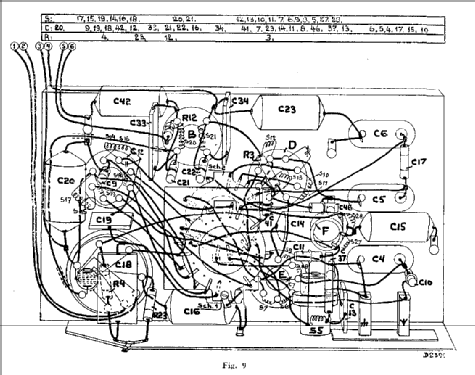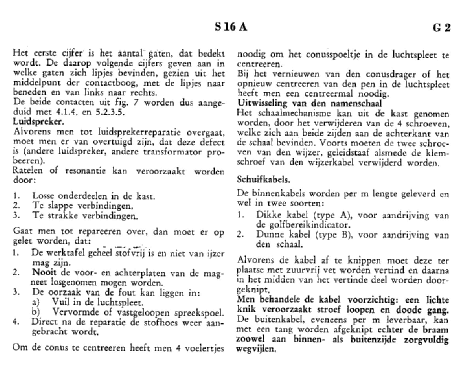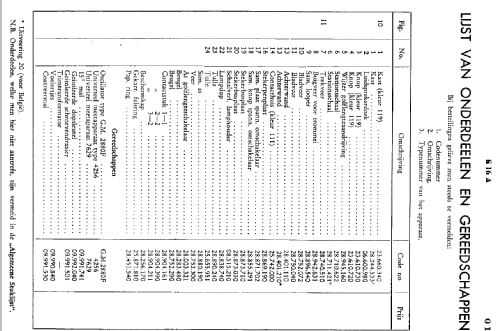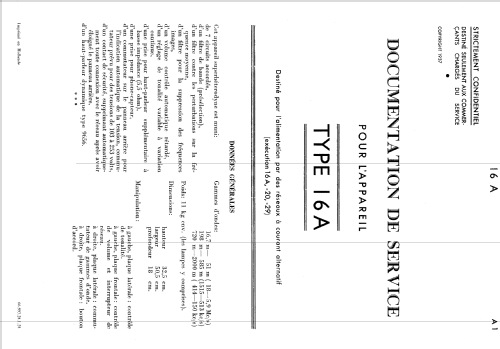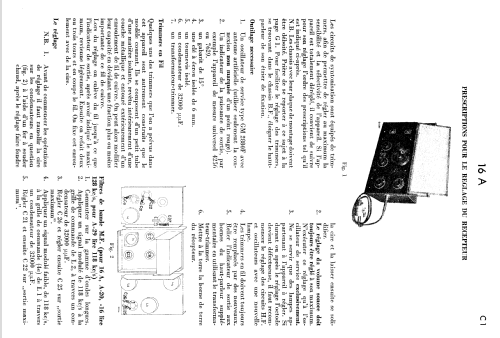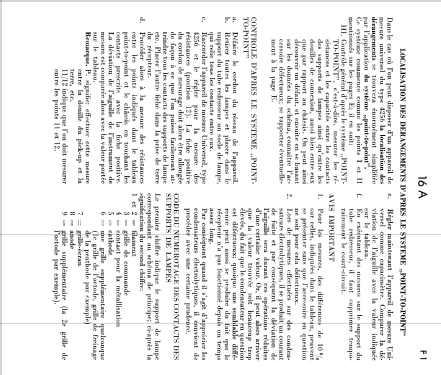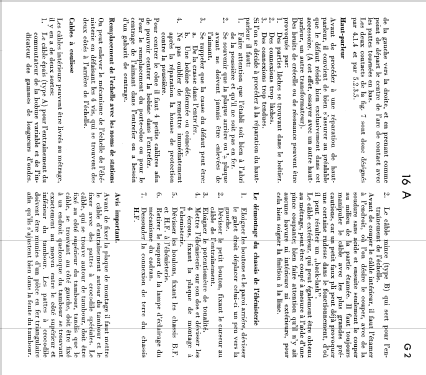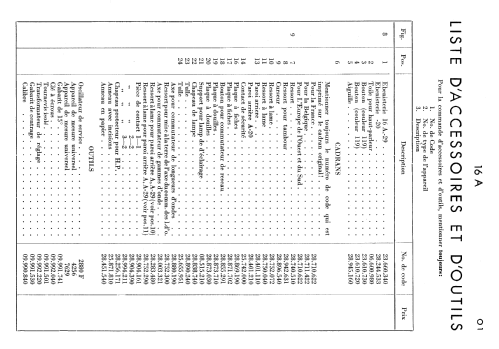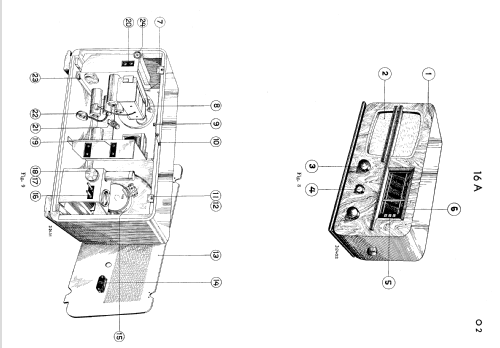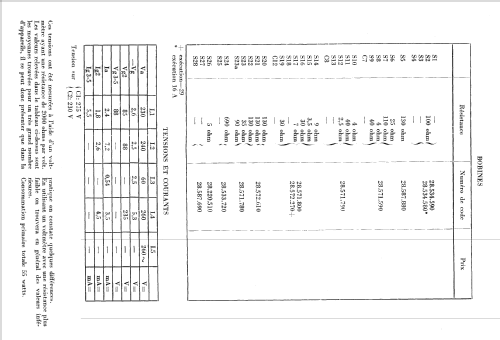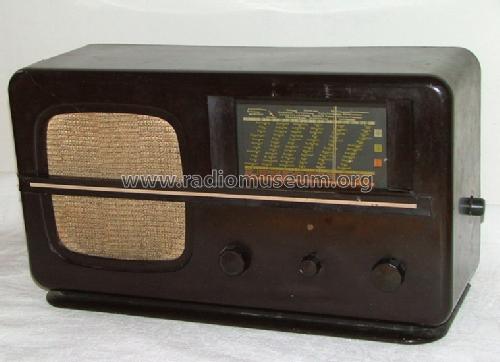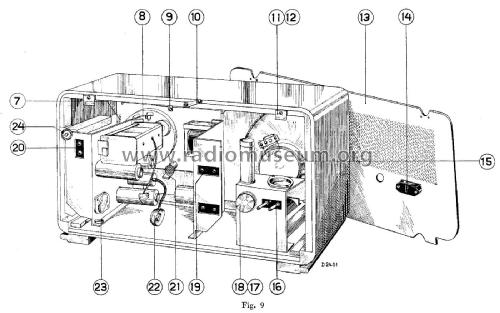S16A, S16A -32
Siera; Eindhoven (NL)
- Country
- Netherlands
- Manufacturer / Brand
- Siera; Eindhoven (NL)
- Year
- 1937
- Category
- Broadcast Receiver - or past WW2 Tuner
- Radiomuseum.org ID
- 84117
Click on the schematic thumbnail to request the schematic as a free document.
- Number of Tubes
- 5
- Main principle
- Superheterodyne (common); ZF/IF 128 kHz; 2 AF stage(s); Export model
- Tuned circuits
- 7 AM circuit(s)
- Wave bands
- Broadcast, Long Wave and Short Wave.
- Power type and voltage
- Alternating Current supply (AC) / 110; 125; 145; 200; 220; 245 Volt
- Loudspeaker
- Permanent Magnet Dynamic (PDyn) Loudspeaker (moving coil)
- Material
- Bakelite case
- from Radiomuseum.org
- Model: S16A, S16A -32 - Siera; Eindhoven NL
- Shape
- Tablemodel, low profile (big size).
- Dimensions (WHD)
- 480 x 320 x 185 mm / 18.9 x 12.6 x 7.3 inch
- Notes
-
3 Band reception:
- LW: 720 - 2000 m.
- BC: 198 - 585 m.
- SW: 16,7 - 51 m.
Tuning scale light bulbs type: 8042 (4V, 500mA).Loudspeaker Philips type 9656. Connectors for second loudspeaker and for pick-up.Model S16A without suffix is intented for export to the nordic countries. See Siera S16U for a prospect in the country of Lithuania.See also the Siera S16A -20 for the Belgian home market.Model S16A -32 is the same as S16A without suffix but it has an I.F. of 118 kHz.
This model is comparable with Tenor T16A, Fenno Seura 38, Jura J16A, Waldorp 471 and Philips 461A.
- Net weight (2.2 lb = 1 kg)
- 10.4 kg / 22 lb 14.5 oz (22.907 lb)
- Price in first year of sale
- 365.00 Lt
- Mentioned in
- - - Manufacturers Literature (Siera memento of tubes and models 1932-1946)
- Literature/Schematics (1)
- -- Original-techn. papers. (Generic model S16A by Philips dated 1937)
- Author
- Model page created by Zenonas Langaitis. See "Data change" for further contributors.
- Other Models
-
Here you find 53 models, 51 with images and 21 with schematics for wireless sets etc. In French: TSF for Télégraphie sans fil.
All listed radios etc. from Siera; Eindhoven (NL)
Collections
The model is part of the collections of the following members.


